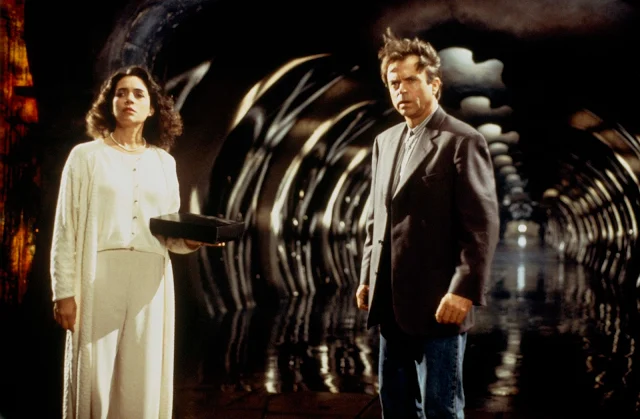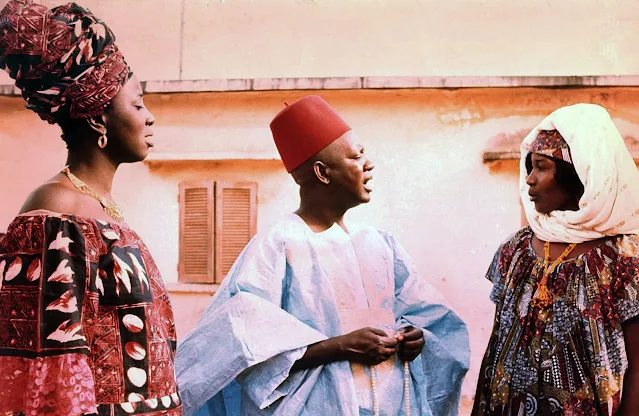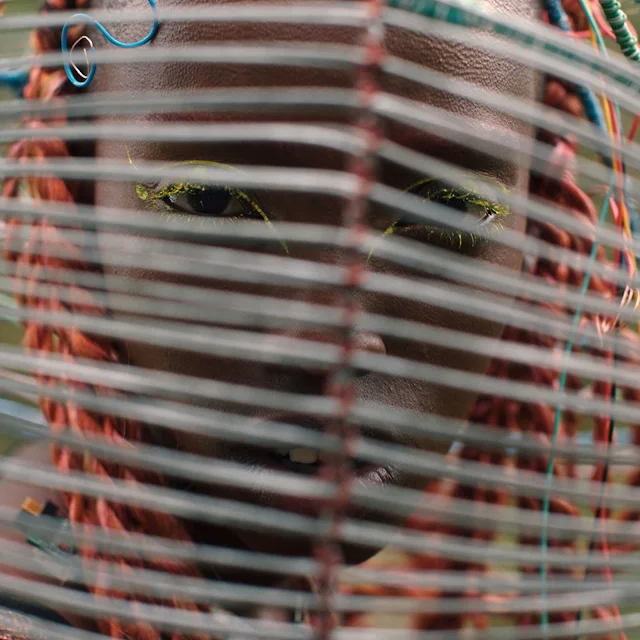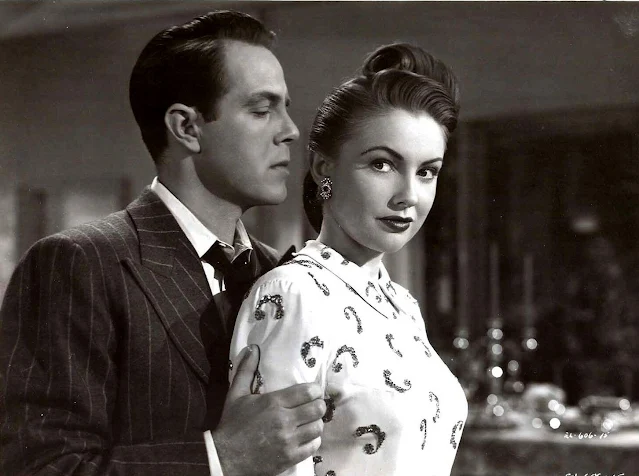 |
| Edmond O'Brien, Gordon MacRae, and Virginia Mayo in Backfire |
Cast: Gordon MacRae, Virginia Mayo, Edmond O'Brien, Viveca Lindfors, Dane Clark, Ed Begley, Sheila MacRae, Mack Williams, Leonard Strong, Frances Robinson, Richard Rober, David Hoffman, Ida Moore. Screenplay: Lawrence B. Marcus, Ivan Goff, Ben Roberts. Cinematography: Carl E. Guthrie. Art direction: Anton Grot. Film editing: Thomas Reilly. Music: Daniele Amfitheatrof.
Backfire is a hyperplotted whodunit that aspires to some of the narrative complexity of Raymond Chandler but doesn't quite have what it takes. Gordon MacRae plays Bob Corey, recovering from war wounds in an Army hospital, who receives a visit one night from a mysterious woman (Viveca Lindfors) who tells him that his friend Steve Connolly (Edmond O'Brien) has been in a serious accident and is threatening to commit suicide; she asks for his help, but Corey has just been given a shot to help him sleep and passes out as the woman is talking. The next morning, he's not certain whether the woman was really there or if he dreamed about her visit. When he gets out of the hospital, the police contact him: Connolly is wanted for the murder of a notorious gambler and has disappeared. While in the hospital, Corey has fallen in love with a nurse, Julie Benson (Virginia Mayo), and with her help he begins the search for his friend. The rest of the story is told mostly in a series of flashbacks, some of them provided by people who get killed for telling Corey their stories, which all point to a high-roller with a mistress who is none other than the mysterious woman who visited Corey in the hospital. Some suspenseful moments and some entertaining performances keep the movie going, but the outcome is just a little too predictable. It's like one of those TV detective shows where the bad guy turns out to be that character actor you've seen before but can't quite place. This time, it's the actor whose name recognition is a little larger than their role in the movie seems to justify.



























